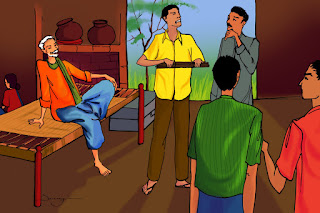Countable and Uncountable noun
Countable noun: A noun that can be counted is called a countable noun. Such nouns can have two forms, singular and plural.
"A/an" can be used before this noun.
Uncountable noun: A noun that usually cannot be counted, but can be measured, is called an uncountable noun. This type of noun is used only as singular, without adding "S/es" at the end. "A/an" cannot be used before this noun, but "the" can be used in special cases if that noun is specifically mentioned.
rule-1
uncountable nouns are used only in the singular and are followed by singular verbs. Article is not used before it.
Example:
Incorrect: Rakib speaks the Japanese at home.
Correct: Rakib speaks Japanese at home.
Incorrect: I like my tea with the milk.
Correct: I like my tea with milk.
Rule-2
There are some nouns that are uncountable nouns in the general sense, but are used as countable nouns in a special sense. Then s or es is added to the end of these nouns or article is used before. Some notable words are business, education, decision, noise, language, time, work, pleasure, history etc.
Example: My neighbour dislike noise. (all sounds, note a specific noise)
Don't make "a noise". (A specific sound)
Rule-3
Few and little are used in the same sense. But 'few' is used before plural countable nouns and 'little' is used before uncountable nouns. Few and little always mean negative, they mean "hardly any".
Example: There is "little time" to waste.
I have few friends. (It means that, I have no friend)
Rule-4
Few and little are used in the sense of not. But if 'a' sits before them, the sentence becomes positive.
Example: There is "a little milk" in the bottle. (It means to have some milk)
Give me "a little butter" please.
I have a few friends. (It means to have some friends)
Rule-5
Many/ a many/ a great many is followed by plural countable nouns and much/too much is followed by uncountable nouns.
Example:
Incorrect: There was not many news.
Correct: There was not "much news"
Incorrect: Peter and Carol do not have much children.
correct: Peter and Carol don't have "many children".
Rule-6
Uncountable noun is always singular but its unit is plural and verb is singular. For example: Time (10 hours / One hour); Money (50 dollars / One dollar); weight (20 kgs/ One kg); Length (20 meters/ one meter); Distance (11 miles/One mile).
Example: The length of cricket pitch
" is 22 meters".
Four "months is" a long time for this task.



Comments
Post a Comment